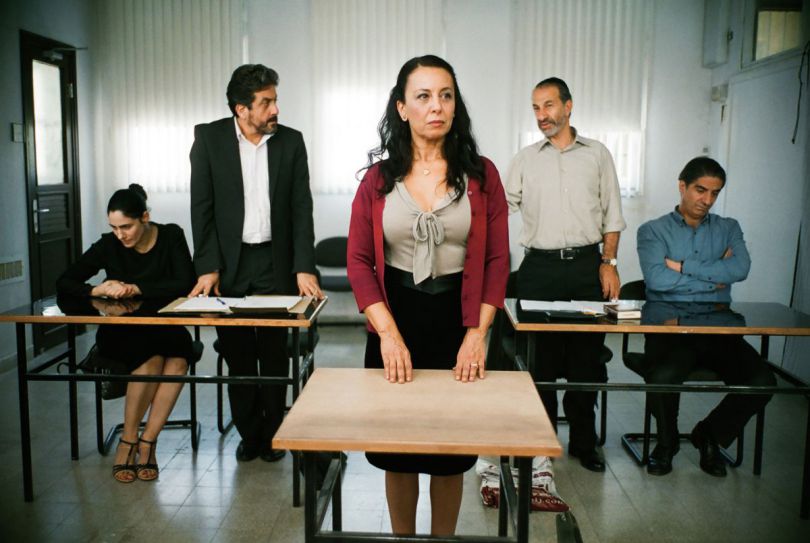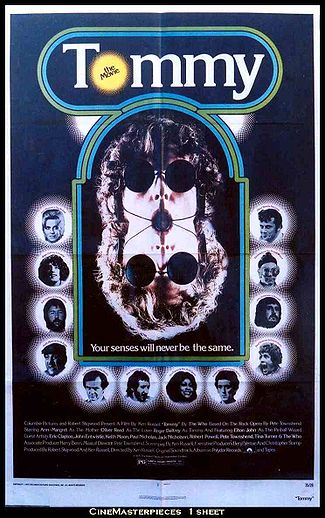|
|
||
|
Pro Tools
FILMFESTIVALS | 24/7 world wide coverageWelcome ! Enjoy the best of both worlds: Film & Festival News, exploring the best of the film festivals community. Launched in 1995, relentlessly connecting films to festivals, documenting and promoting festivals worldwide. Working on an upgrade soon. For collaboration, editorial contributions, or publicity, please send us an email here. User login |
Gett: The Trial of Viviane Amsalem
If your protagonist has to keep pressing her case in a dingy courtroom for five years, the world of your movie can get pretty claustrophobic. It's an acceptable risk of Gett: The Trial of Viviane Amsalem, which unfolds within court chambers and a waiting room till virtually the last frame. How else to show what the titular character (Ronit Elkabetz) goes through to obtain a divorce in Israel's Orthodox Chief Rabbinate? Directors Ronit and Shlomi Elkabetz give viewers an authentic taste of Viviane's slog towards freedom, as they did in To Take a Wife (2004) and Seven Days (2008), the first two films of their Viviane Amsalem trilogy. As Shlomi recently explained at a New York Jewish Film Festival screening of Gett at the Film Society of Lincoln Center, her saga of entrapment is inspired by his and his sister's take on their mother. The cycle begins with the verbal equivalent of a gun that goes off in the third film. "You think he'll give you a divorce so fast?" admonishes one of Viviane's seven brothers who commandeers her marital crisis in Haifa of 1979. The family recognizes that they're "no longer in Morocco," yet patriarchal traditions die hard. A potent brew of threats, cajolings and guilt trips blends with Viviane's fear, frayed nerves and sense of honor to keep her under a domestic curse. Now, many moons later, she's no longer a woman on the verge of a breakdown, and she'll do what it takes to bust loose. It's been three years since the mother of four separated from her husband Elisha (the French-Armenian actor Simon Abkarian), and just as long since she formally requested a divorce.
After exploring Viviane's self-reckoning in To Take a Wife and subsequent confrontation with her kin and community in Seven Days, the Elkabetzes looked to "the final frontier -- between her and the State," Shlomi noted. Gett is their answer to the question, "If she wanted to get a divorce...how would the system respond?" It builds on the true premise that Jewish law holds sway over marriage and divorce in Israel, and that, per this ancient code, a woman needs her husband’s consent to be released from matrimony. Viviane's lack of say-so is captured in her total silence for the first five minutes of the film, followed by her more and less successful attempts at self-restraint throughout. As if to underscore her muzzled status, captions evocative of silent film state the passage of time between court appearances. This wink to damsel-in-distress dramas of yore plays up the retro absurdity of Viviane's ordeal. Perhaps not since the 20s have facial expressions spoken such volumes onscreen. Especially in her close-ups, Ronit's haunted, piercing regard recalls Falconetti in the title role of Carl Th. Dreyer's The Passion of Joan of Arc. The filmmakers reference female martyrdom in the talky era as well; Gett's title and back-and-forth cuts bring to mind Robert Bresson's The Trial of Joan of Arc. Yet DP Jeanne Lapoirie puts everyone on trial in Gett, not just its long-suffering heroine. The court itself comes under scrutiny. Its lack of objectivity is implied in the visual language. With each shot lensed from a character's POV, it's as though the viewer is summoned to judge whoever happens to be passing judgement in the frame. A particularly charged moment arises when Viviane's lawyer, Carmel Ben Tovim (Menashe Noy) is accused of being in love with her. Already the film's opening shot of him gazing solicitously in her direction plants a qualm about his agenda. Whatever Ben Tovim's true feelings, however, the stakes would be prohibitive were he to act amorously towards his client. Not only would the trial be scotched, but as a married woman, Viviane would be halakhically forbidden to wed whomever she'd had an adulterous relationship with were she ever granted her gett.
To help weigh the merits of that gett, witnesses are brought in from the family and neighborhood. It's a regular Sephardic Chelm with these salt-of-the-earth types as as they show why there are -- or aren't -- grounds to make Elisha unshackle his wife. Providing testimony in a Babel of accents and tongues, they bring welcome color, comedy and commotion to the stark proceedings. Amen to the performances. Dalia Berger, Ruby Porat Shoval and vintage bourekas star Ze'ev Revach are standouts, and Sasson Gabai as Elisha's attorney and brother, the so-called "Rabbi" Shimon, won a well-deserved Israeli Academy Award for Best Supporting Actor. And that's not counting Ronit's mezmerizing star turn as plaintive. The Kabuki spectacle of her miming despair, humor and sensibilities in between compels no less then when she erupts in loud rage. It's possible to see how Elisha, however withholding and injurious his behavior, would remain in the thrall of this alabastar force field. Why the Israeli Academy denied Ronit the Best Actress trophy is a tough guess, but at least it conferred top honors on Gett.
Annual nods aside, the film's impact may be epochal. Just as the characters' own bona fides come under scrutiny onscreen, the misogyny of the religious establishment is exposed to the glare of the audience. "So there may be change," as Shlomi quasi-optimistically put it. On February 13, dozens of rabbinical court judges will view and discuss the film at a private screening during their annual convention. Already back in December, thanks to the national outcry surrounding Gett, the Rabbinate was forced to open its archives, revealing the more than 45,000 cases of "chained women" ("agunot") currently in line for a Jewish bill of divorce. (This doesn't include those waiting under 18 months.) Previously, the stated number was 600 - 1,000. Whatever changes Gett may stoke surrounding Judaism's 4,000-year-old precepts for untying the knot, as a modern exodus story, it gavels into both private and public memory. For that alone, sound the ram's horn. 27.01.2015 | Laura Blum's blog Cat. : divorce Gett: The Trial of Viviane Amsalem israel Rabinnate Ronit Elkabetz Sasson Gabay Shlomi Elkabetz Simon Abkarian Independent
|
LinksThe Bulletin Board > The Bulletin Board Blog Following News Interview with IFTA Chairman (AFM)
Interview with Cannes Marche du Film Director
Filmfestivals.com dailies live coverage from > Live from India
Useful links for the indies: > Big files transfer
+ SUBSCRIBE to the weekly Newsletter Deals+ Special offers and discounts from filmfestivals.com Selected fun offers
> Bonus Casino
User imagesAbout Laura BlumThe EditorUser contributions |

































